Lap-Fai Yu |
Sai-Kit Yeung |
Demetri Terzopoulos |
Tony F. Chan |
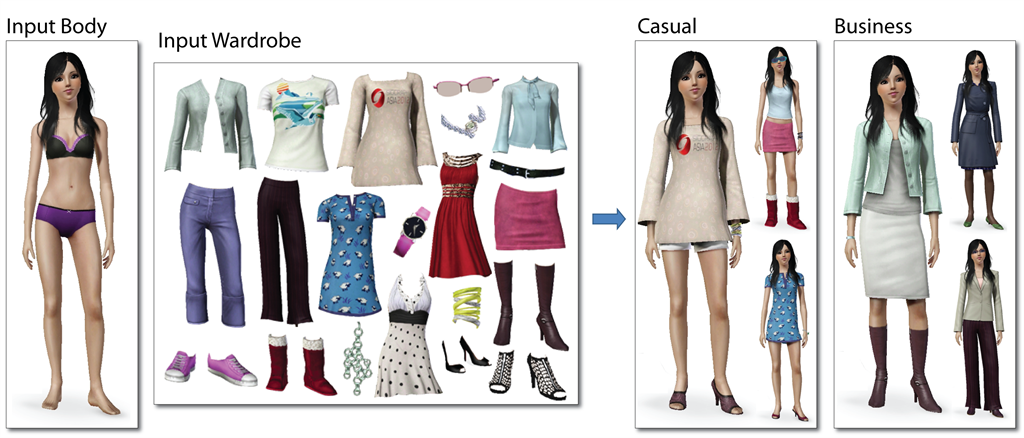
Abstract We present an automatic optimization approach to outfit synthesis. Given the hair color, eye color, and skin color of the input body, plus a wardrobe of clothing items, our outfit synthesis system suggests a set of outfits subject to a particular dress code. We introduce a probabilistic framework for modeling and applying dress codes that exploits a Bayesian network trained on example images of real-world outfits. Suitable outfits are then obtained by optimizing a cost function that guides the selection of clothing items to maximize the color compatibility and dress code suitability. We demonstrate our approach on the four most common dress codes: Casual, Sportswear, Business-Casual, and Business. A perceptual study validated on multiple resultant outfits demonstrates the efficacy of our framework.
Keywords: Clothing combination, perception, variety, functionally realistic, virtual world modeling, fashion, color matching, optimization, procedural modeling
Publications:
-
DressUp! Outfit Synthesis Through Automatic Optimization
Lap-Fai Yu, Sai-Kit Yeung, Demetri Terzopoulos, Tony F. Chan
ACM Transactions on Graphics (Proceeding of SIGGRAPHAsia 2012).
Paper, Video, Supplementary Materials
Fast Forward Slides at SiggraphAsia 2012 (Powerpoint) (29.9 MB), Presentation Slides at SiggraphAsia 2012 (Powerpoint) (29.3 MB)
BibTex:
@article{fashion,
author = {Lap-Fai Yu and Sai Kit Yeung and Demetri Terzopoulos and Tony F. Chan},
title = {DressUp!: Outfit Synthesis Through Automatic Optimization},
journal = {ACM Transactions on Graphics},
volume = {31},
year = {2012},
number = {6},
pages = {134:1--134:14}
}
Acknowledgements:
We are grateful to the anonymous reviewers for their constructive comments. We also thank Michael S. Brown for narrating the video; Lap-Fai Lee for advice on data analysis of the perceptual study; Yibiao Zhao for advice on optimization; Anh Do for idea discussion, fashion websites suggestion and comments on the results; Howard Alexander Greene for idea discussion; This research was partially supported by Singapore University of Technolgy and Design (SUTD) StartUp Grant ISTD 2011 016. Lap-Fai Yu is supported by the Sir Edward Youde Memorial Fellowship.
Patents:
"CLOTHING MATCHING SYSTEM AND METHODS", US patent application no. 61/725,073
Results:
This paper introduces an automated framework for outfit synthesis, which is a highly practical topic both in daily life and computer graphics. Our approach optimizes outfits in a way similar to real world situations. The body color tone classifier automates the classification pre-process in fashion practices, avoiding cumbersome, obscure, manual classification. From the user's perspective, our framework is highly intuitive in practical use. On the one hand, if one fixes item colors and permits only addition, removal, or swapping moves during optimization, one is mimicking the scenario of a fixed wardrobe, and the optimizer jointly considers style and colorwhen synthesizing outfits out of the available clothing items. On the other hand, if one permits the changing of certain clothing item colors, this is similar to buying new clothes, and it is particularly useful for populating virtual worlds with characters that exhibit realistic sartorial variety.
Currently, we have incorporated four different dress codes: Casual, Sportswear, Business-Casual, and Business into our outfit synthesis system, but our learning and synthesis framework is flexible enough to accommodate additional criteria such as season, texture pattern, clothing shape, age, body proportion, etc., which we plan to explore in future work. For simplicity, we assumed each clothing item is represented by its dominant color.
 |
 |
 |
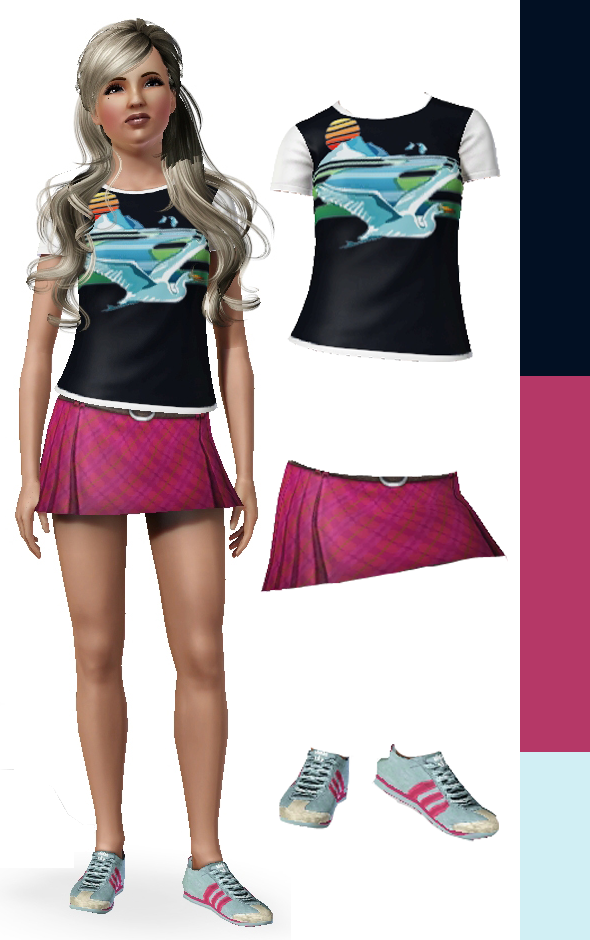 |
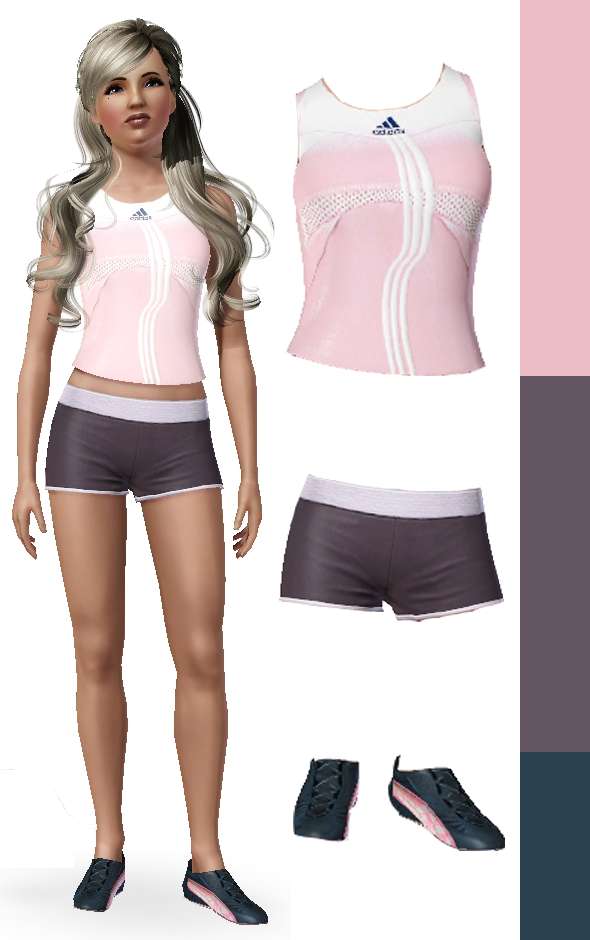 |
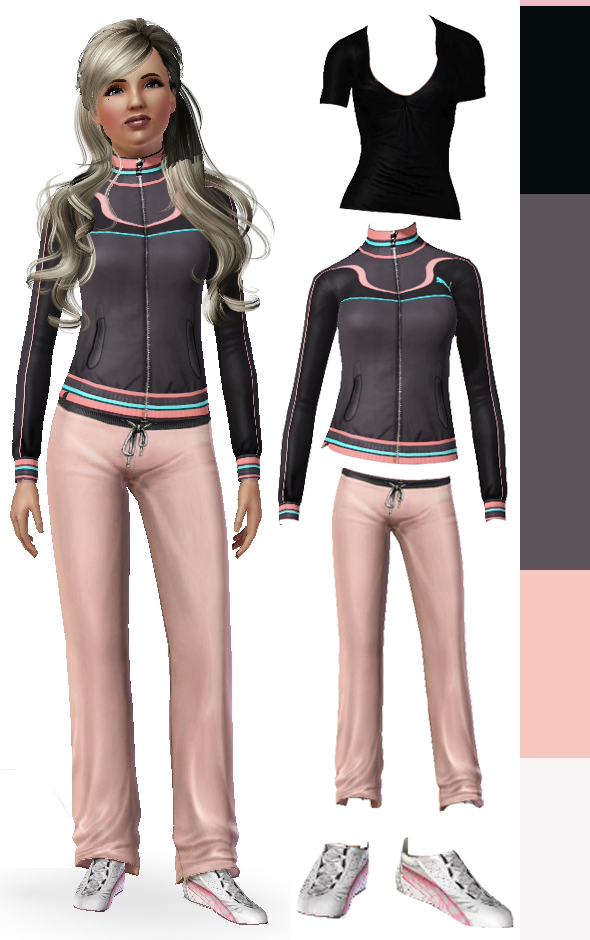 |
Business |
Sportswear |
Multiple outfit recommendations with specific clothing items being fixed:
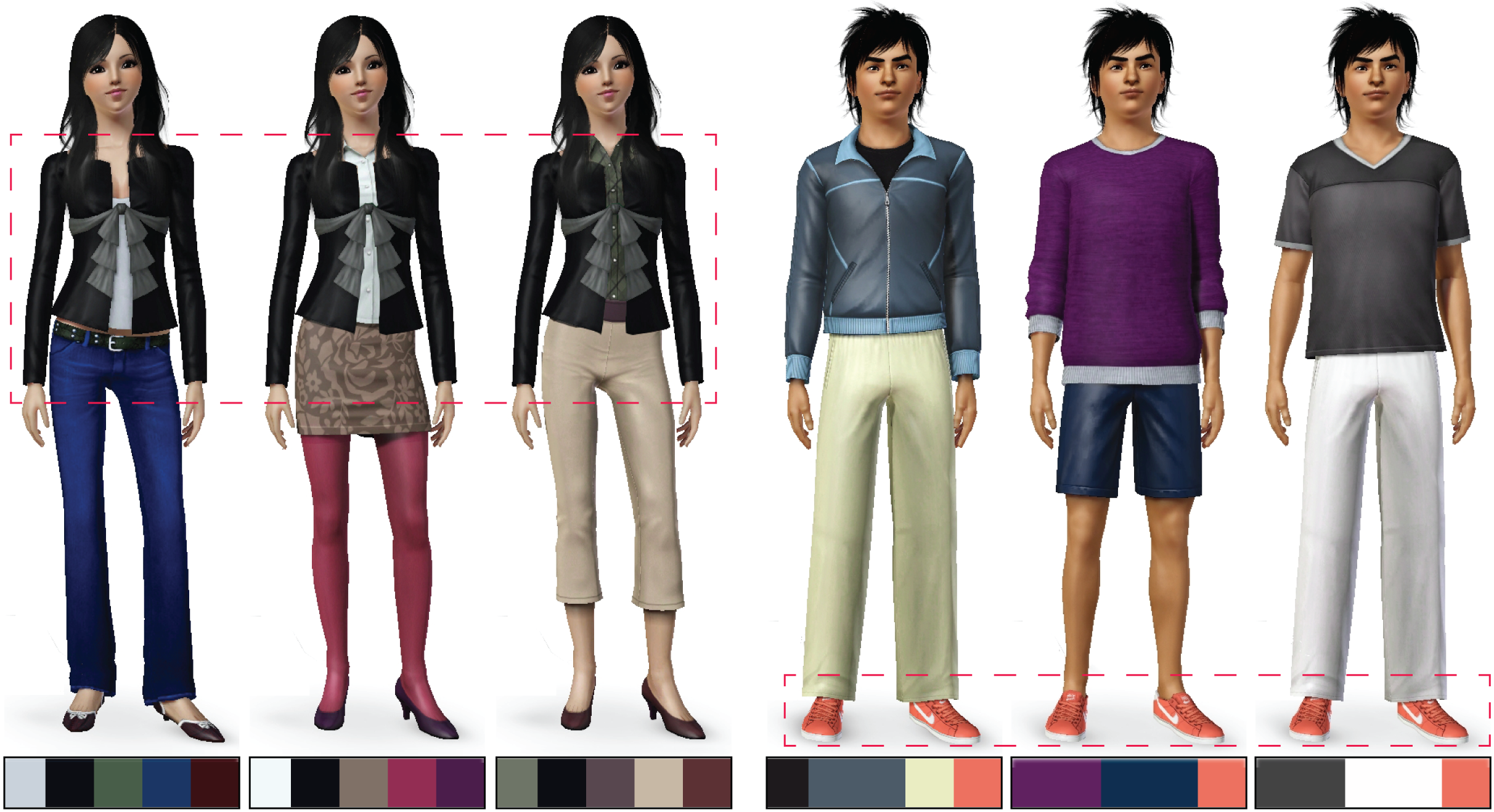
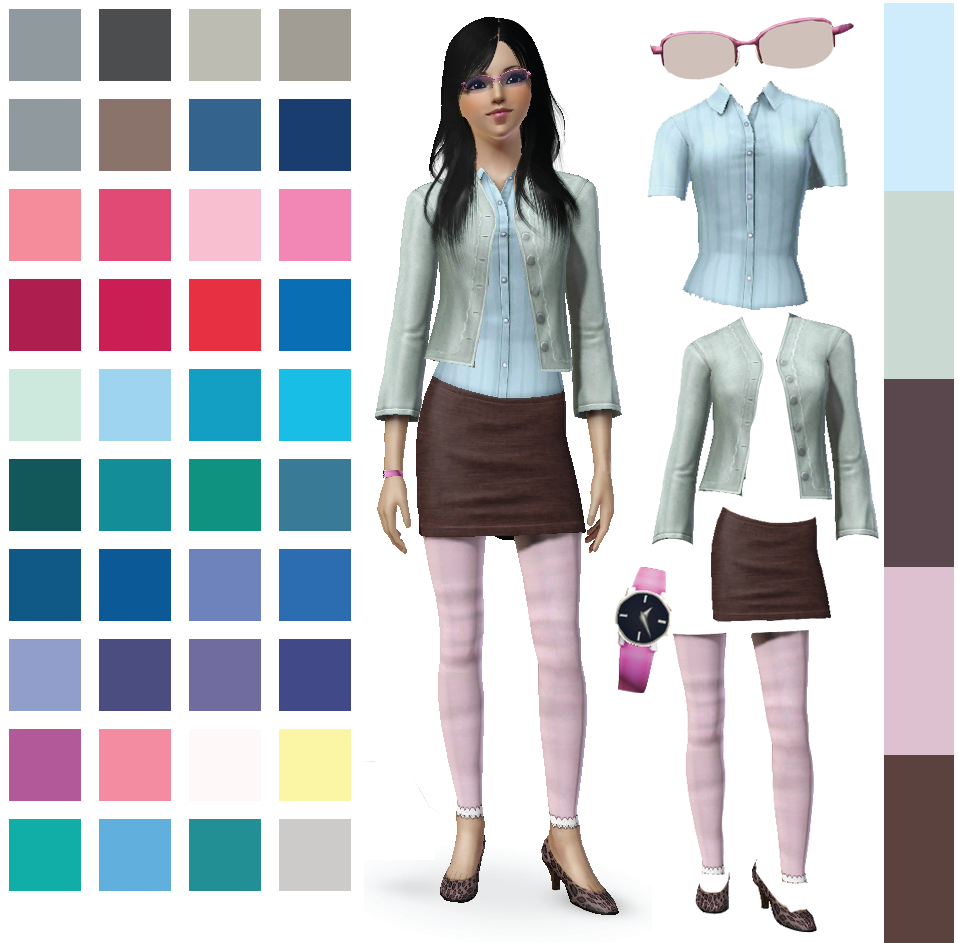 |
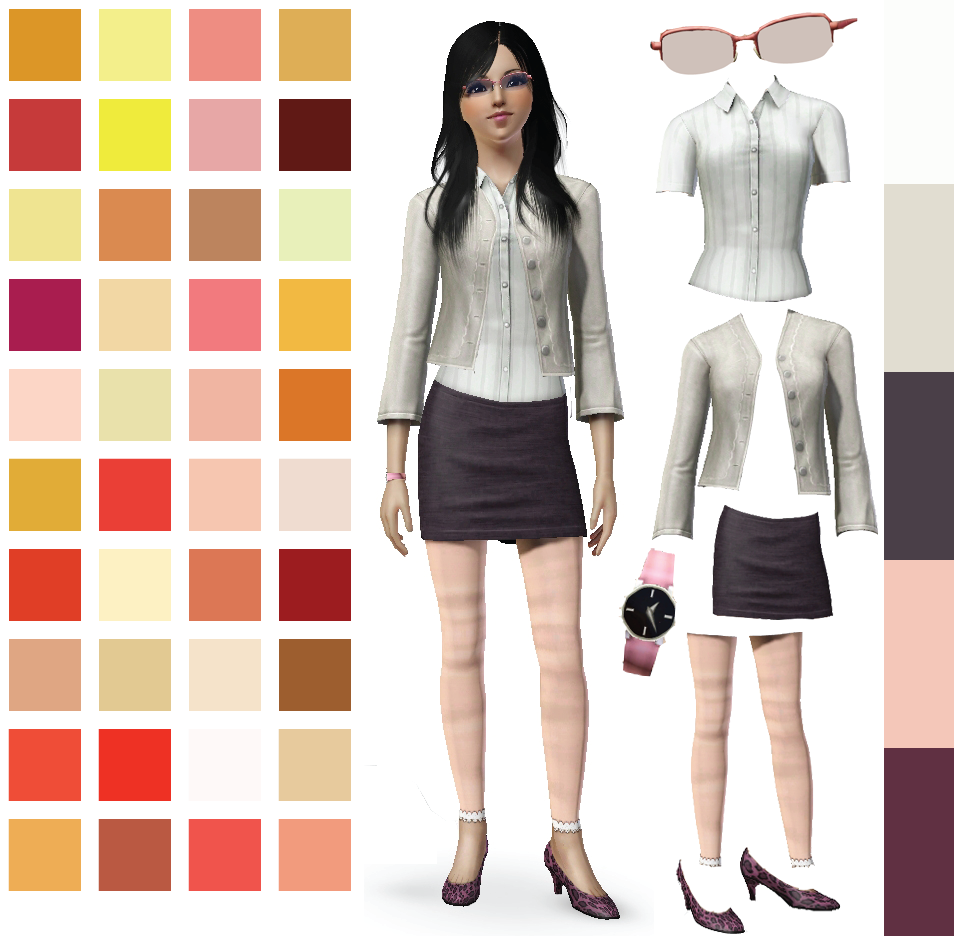 |
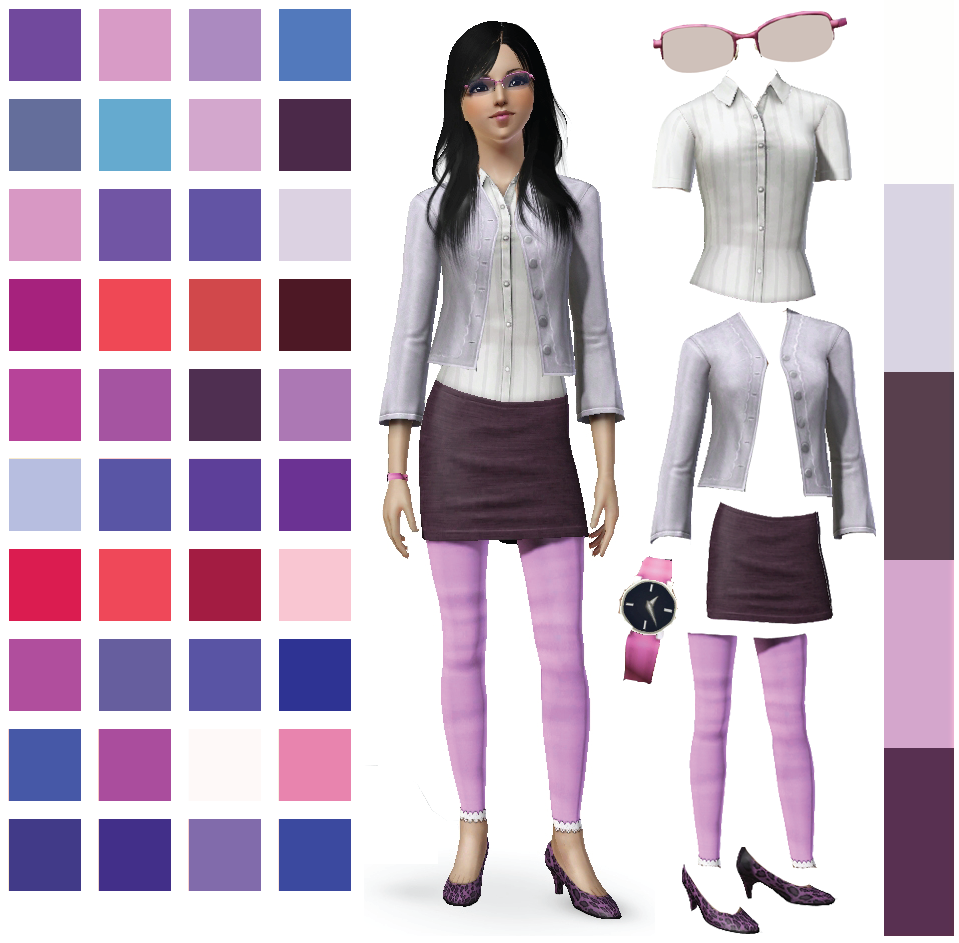 |
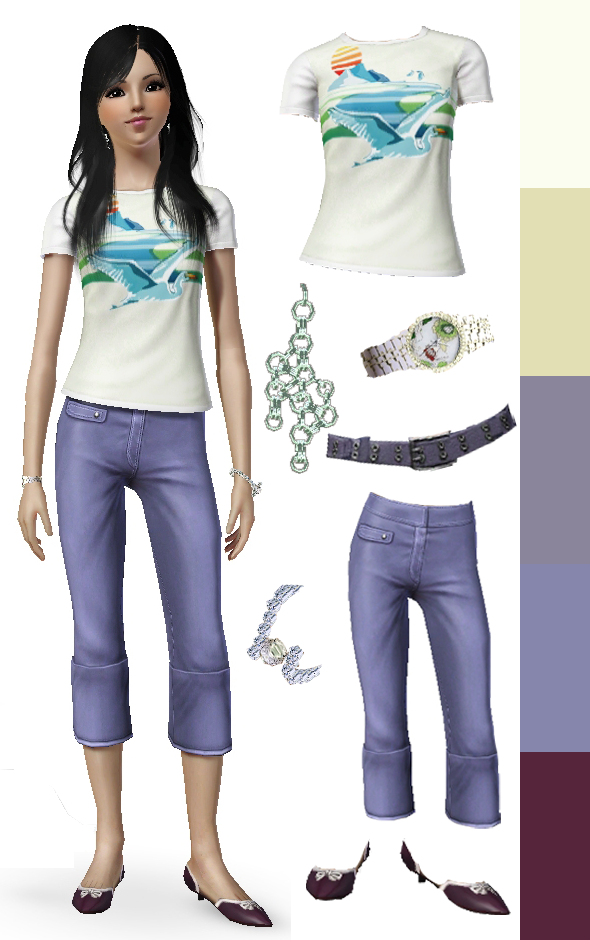 |
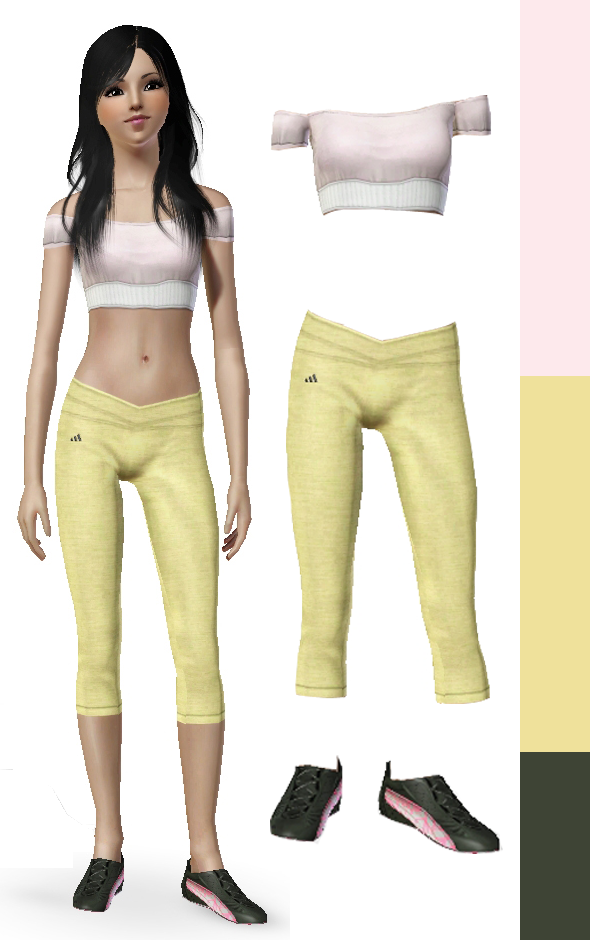 |
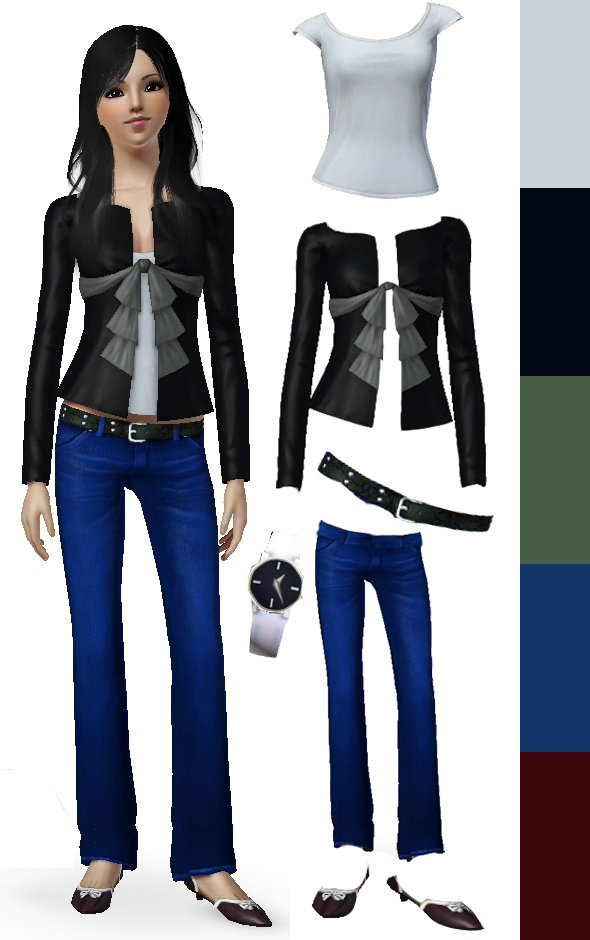 |
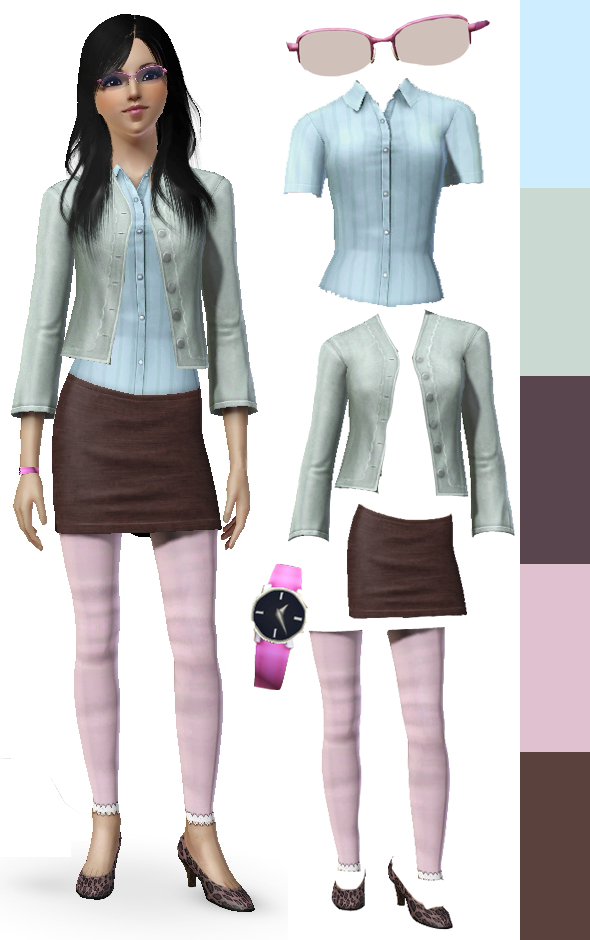 |
|
| "Eddie" (Male, Cool) | 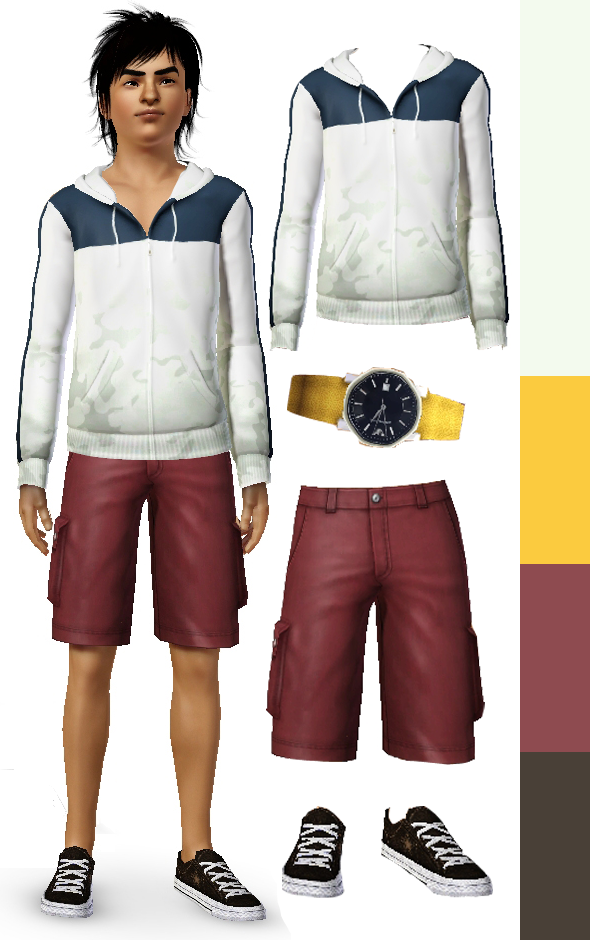 |
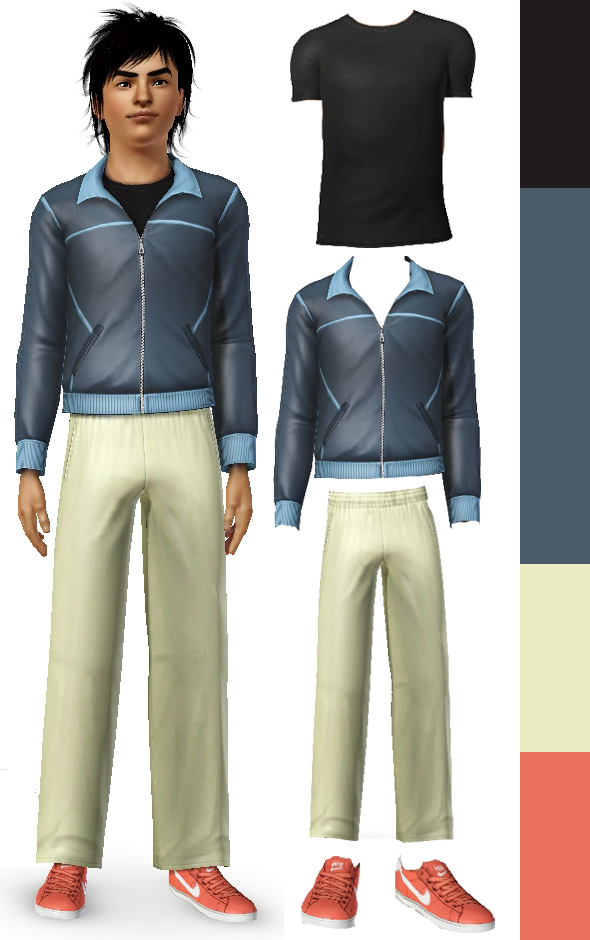 |
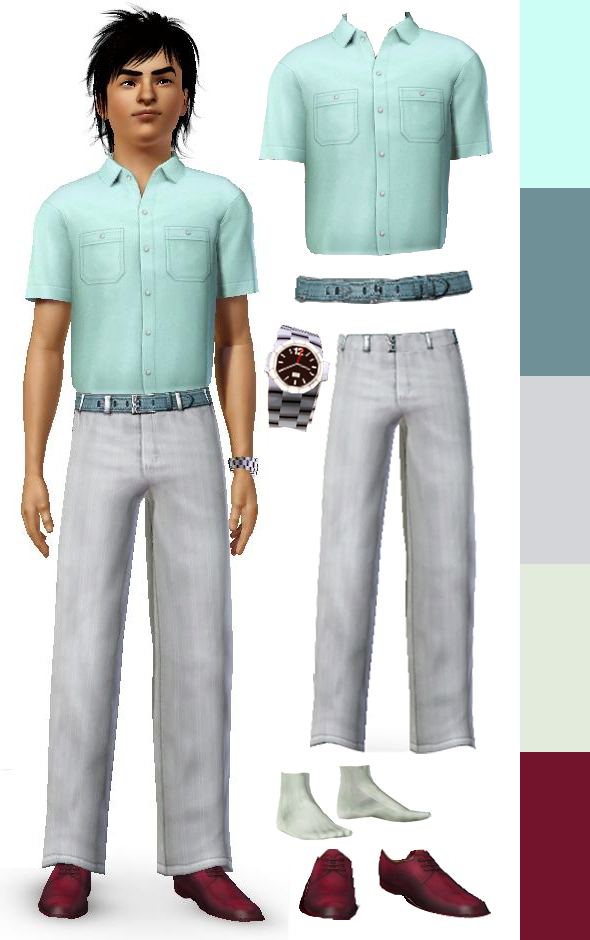 |
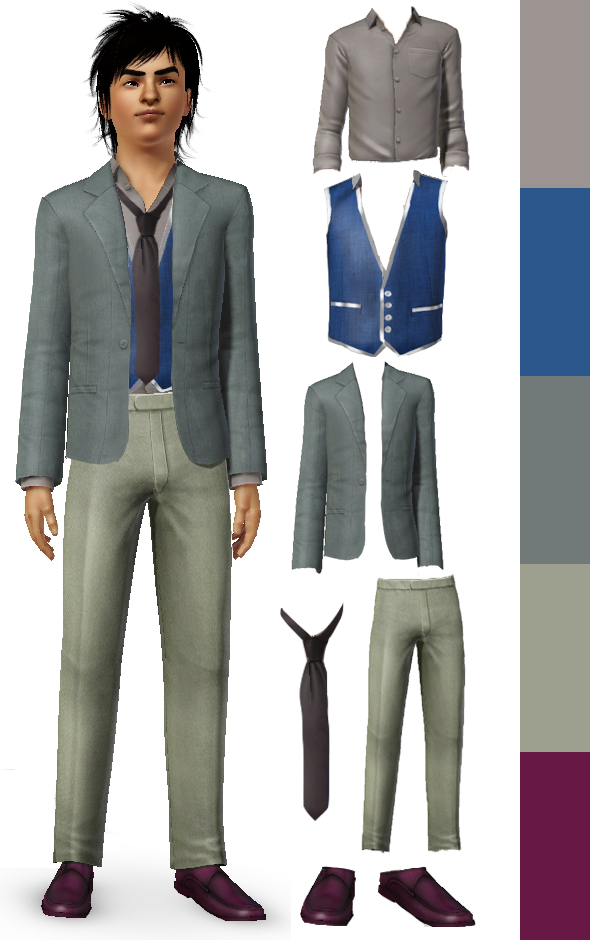 |
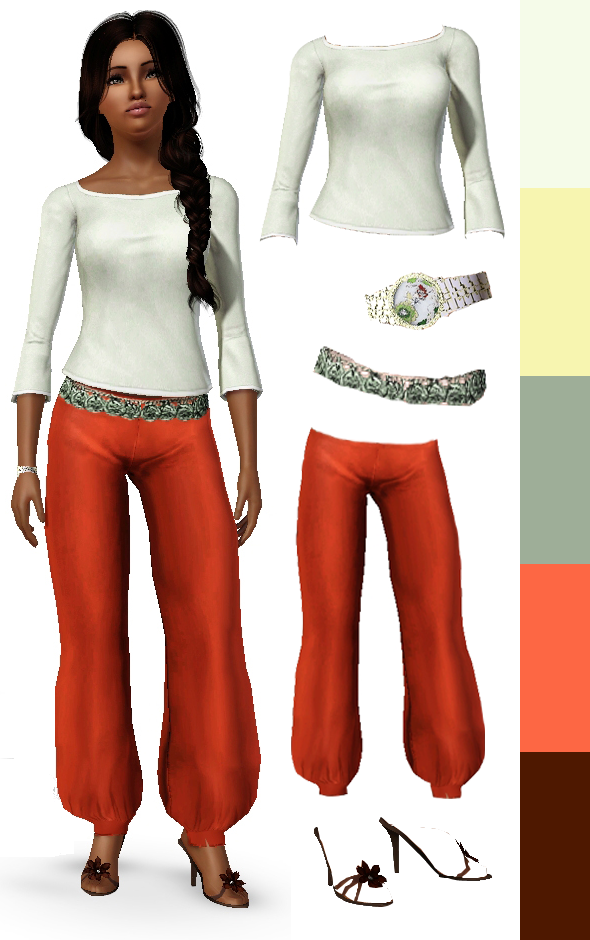 |
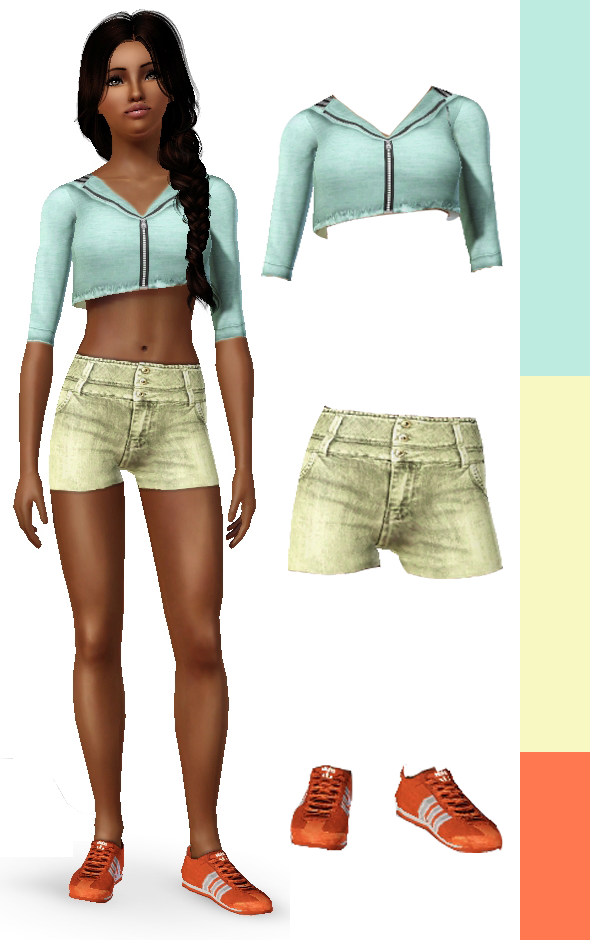 |
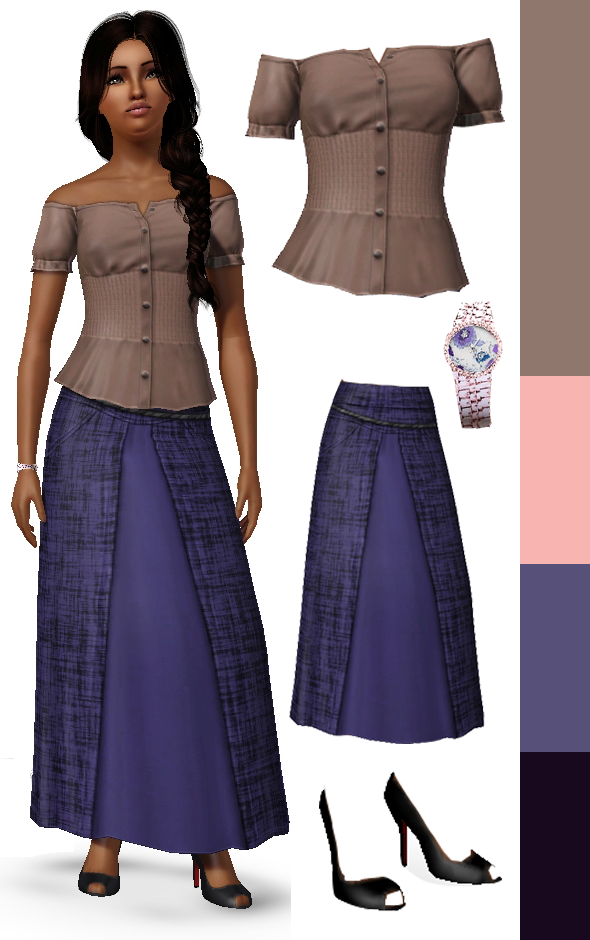 |
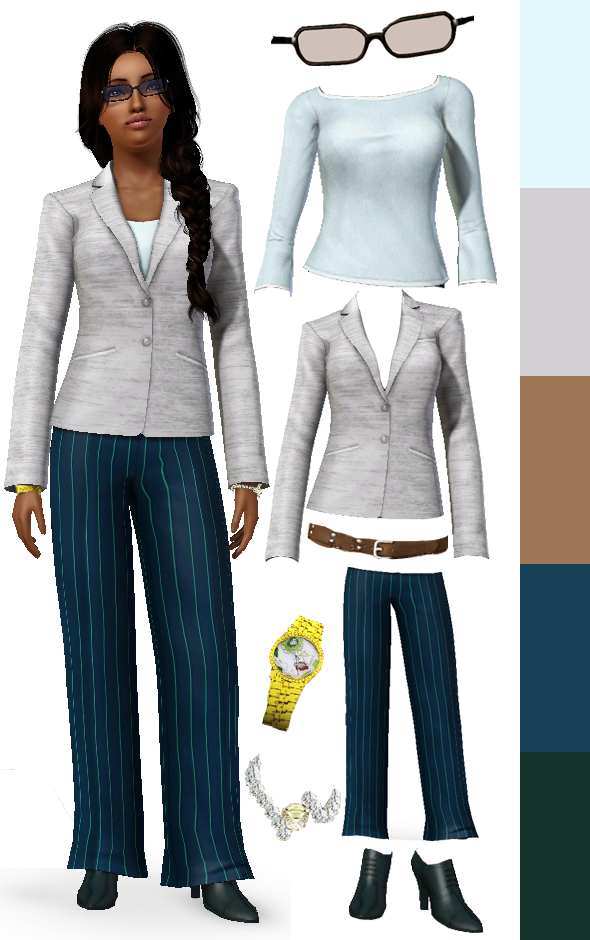 |
|
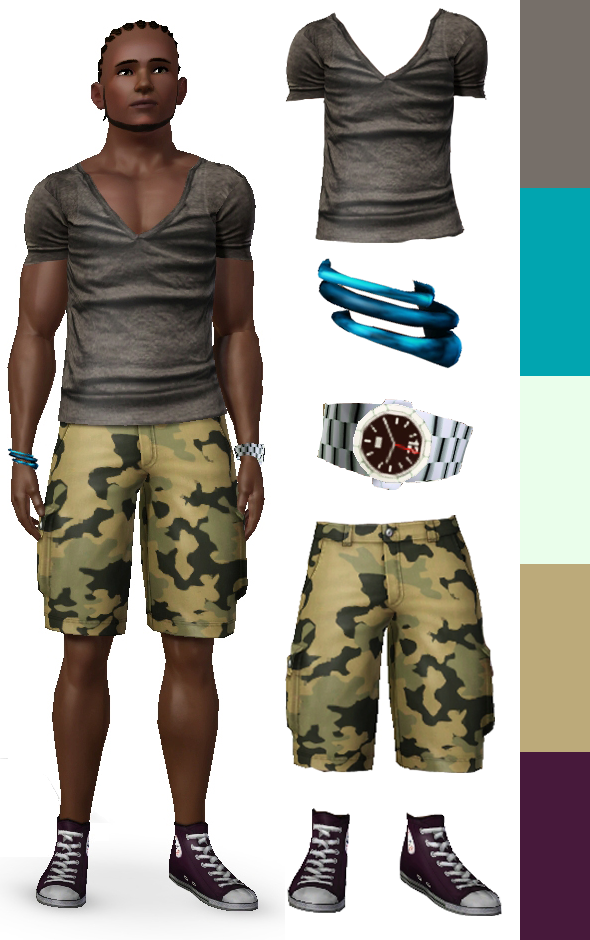 |
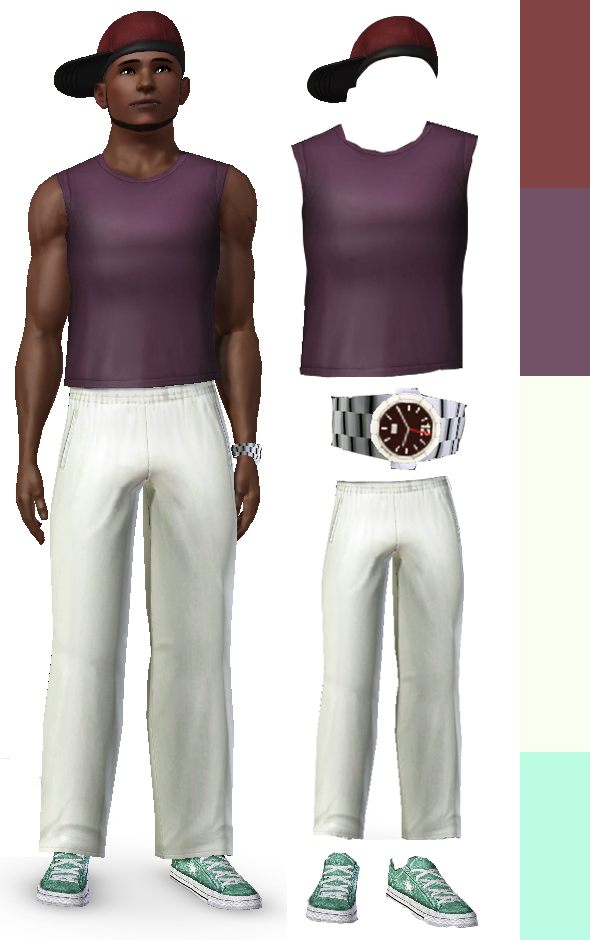 |
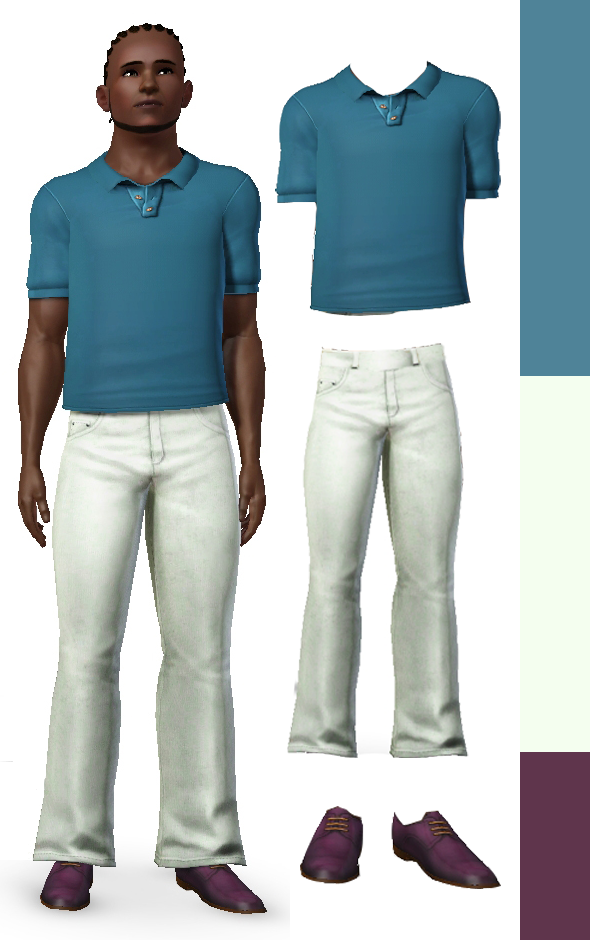 |
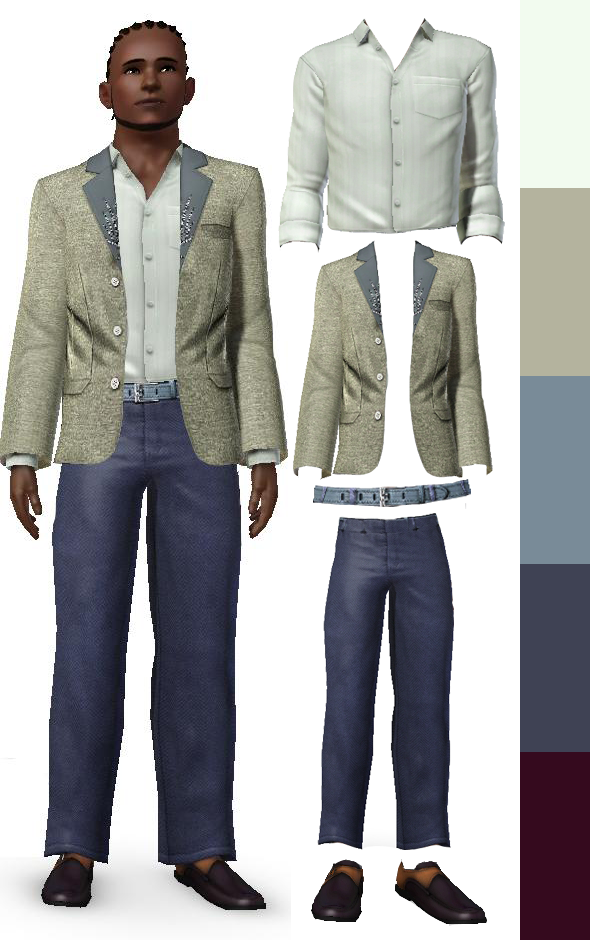 |
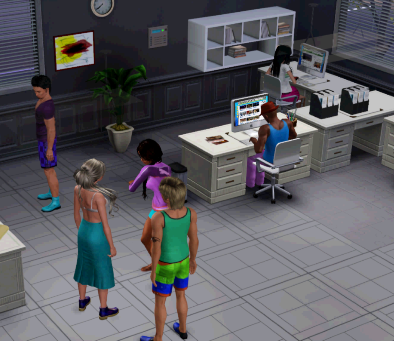 |
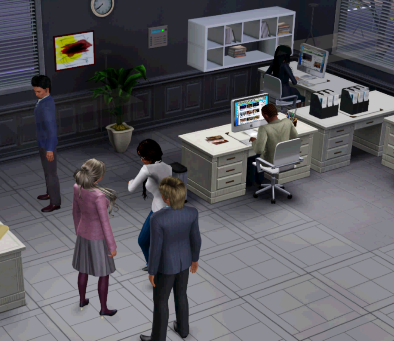 |
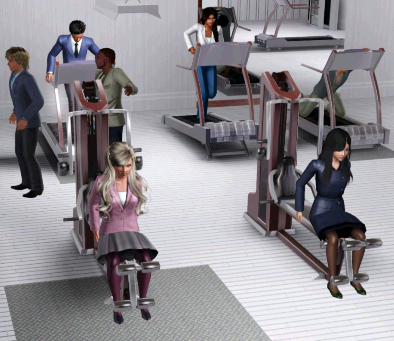 |
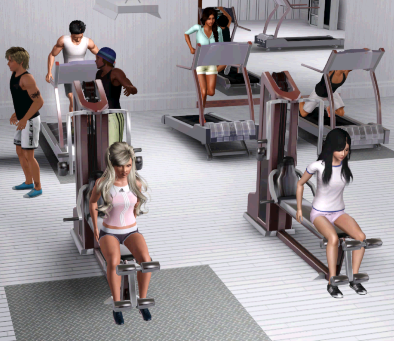 |